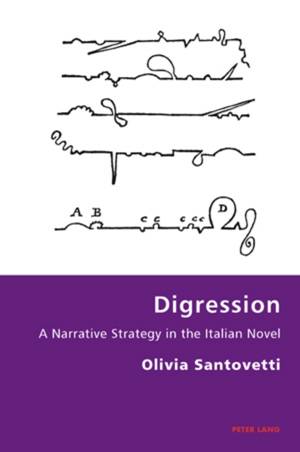
- Afhalen na 1 uur in een winkel met voorraad
- Gratis thuislevering in België vanaf € 30
- Ruim aanbod met 7 miljoen producten
- Afhalen na 1 uur in een winkel met voorraad
- Gratis thuislevering in België vanaf € 30
- Ruim aanbod met 7 miljoen producten
Zoeken
Omschrijving
'Digressions, incontestably, are the sunshine; - they are the life, the soul of reading'. So declared Laurence Sterne in his Tristram Shandy, the greatest of all monuments to digression. The modern Italian novel was not slow to pick up on Sterne's lesson. This book examines the workings of digression in the novels of five major Italian authors - Manzoni, Dossi, Pirandello, Gadda, and Calvino - from the birth of the modern novel in the early 19th century to the era of postmodernist experimentation. Digression is shown to play a role in defining not only the poetics of the five authors, but also their underlying world-views, their cognitive and philosophical dispositions. The book explores the tensions digression engenders in narrative texts, by creating extra time within narration, disrupting the readers' expectations, and generating an act of reflection upon the narrative process itself. What emerges is a sense of the vitality and flexibility of the device of digression in the Italian tradition, both within the canonical novel and the anti-novel, as well as an illuminating and original web of relations between the five authors under analysis.
Specificaties
Betrokkenen
- Auteur(s):
- Uitgeverij:
Inhoud
- Aantal bladzijden:
- 262
- Taal:
- Engels
- Reeks:
- Reeksnummer:
- nr. 1
Eigenschappen
- Productcode (EAN):
- 9783039105502
- Verschijningsdatum:
- 9/10/2007
- Uitvoering:
- Paperback
- Formaat:
- Trade paperback (VS)
- Afmetingen:
- 152 mm x 229 mm
- Gewicht:
- 353 g

Alleen bij Standaard Boekhandel
+ 154 punten op je klantenkaart van Standaard Boekhandel
Beoordelingen
We publiceren alleen reviews die voldoen aan de voorwaarden voor reviews. Bekijk onze voorwaarden voor reviews.











